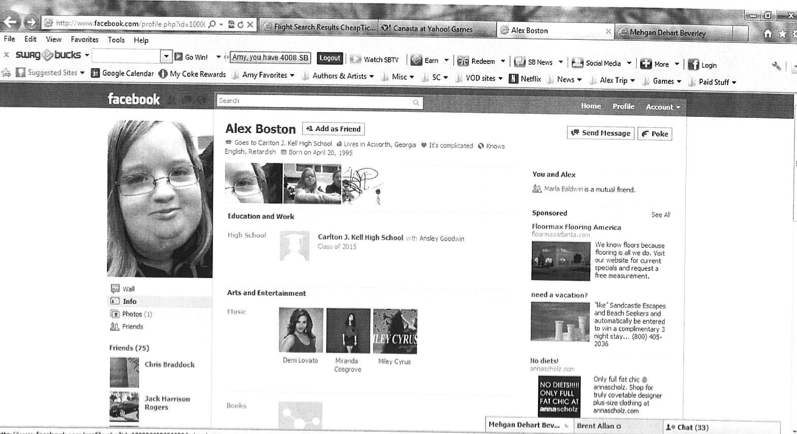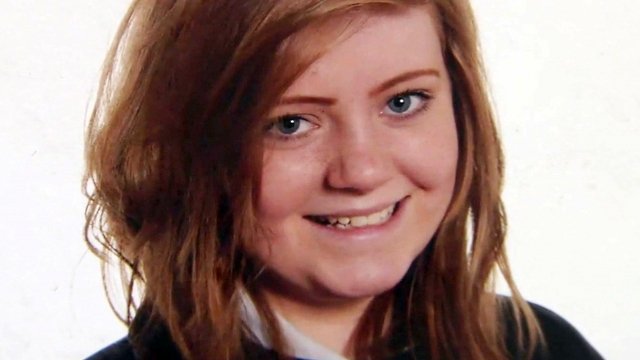Cyberbullying is becoming one of the biggest risks for kids online.
A 2014 study by the Irish National Association of Principals and Deputy Principals found 16 per cent of students have experienced cyberbullying (a 33% increase on last year). In the poll of 1,000 parents and children 9% of young people said they had bullied another student online, up from 5% in 2013. (Source: Irish Times )
Another 2014 study by NUI Maynooth among Irish second-level students aged 12 to 18 found:
- 17% of children had been victims of bullying.
- 1 in 10 admitted bullying another child.
- One quarter of victims did not confide in anyone.
- Cyberbullying usually goes on for one to two weeks, but can last for several years.
(Source: Irish Independent )
What is Cyberbullying?
We have all heard of cyberbullying but what exactly does it mean? Cyberbullying usually doesn’t mean someone is being “criticised” or “put down” as a once off event. When someone is being cyberbullied it typically means that they are regularly and consistently being mocked for their looks, weight, intelligence, style, grades and popularity and so on.
However, it is important to realise that even if a nasty message on social media is a once off, because it is digital it could be seen by thousands of people and can have a serious impact on the victim so one off instances online also fall under “cyber bullying”.
There are different forms of cyberbullying
There are different ways that your child can be cyberbullied. These involve using social media, messaging apps, and email or text messages to;
- Impersonate your child.
- Verbally insult and intimidate your child.
- Humiliate your child.
- Exclude your child from their group of friends.
- Impersonating your child
This usually involves the bullies creating a fake Facebook profile, Instagram account or Twitter account in your child’s name and using your child’s photo. Then the bullies send out posts that;
- Include unflattering photos or videos of your child that they took at school.
- Self-criticising posts saying how ugly or fat your child feels.
- Bitchy comments about other students.
Example
Wired.com reported this example of fourteen-year-old Alex Boston who sued her classmates after suffering from terrible bullying on Facebook. Two classmates allegedly created a fake Facebook account in her name, using a photo of her that they distorted. The account was also used to post a racist video to YouTube that implied that Boston hated African-Americans and to leave crude comments on the Facebook pages of other friends, suggesting she was sexually active and smoked marijuana. According to the child’s attorney, there had been no dispute between the teens prior to the bullying. “She just considers herself a normal, average seventh-grader.”
“She had never been targeted or had something like this happen before.” According to the attorney, the alleged teen offenders told school officials that they just didn’t like Boston. “They said ‘she followed us around school too much.’ There was no real explanation, as is so often the case with these activities.” (Source: Wired.com )
2. Verbally insulting and intimidating your child
This type of bullying usually takes the form of:
- Abusive text messages to your child calling him/her ugly, fat, loser etc.
- “Friends” posting nasty comments on your child’s Facebook timeline saying that “nobody likes you”, “you have no friends”, “you are way too ugly” or “asking why are you so fat?” or “have you lost weight yet?”
- Via Twitter, bullies calling your child ugly, a loser, fat etc. Can be either through a tweet reply or through an initial tweet which is seen by all the other classmates and friends.
- On Twitter there are lots of Trolls – people who set up fake accounts for the purpose of being aggressive/abusive/bullying. These people go out of their way to be abusive and are looking for a reaction. Realise that anyone can follow your child on Twitter unless their account is private.
- Via Instagram writing horrible comment’s on a photo that your child has posted. Example; “you’re too ugly for Instagram” or “when are you going to lose some weight?” “Why don’t you have any friends?”
- On Ask.fm, other school kids can answer your child’s questions anonymously and this anonymity often results in very abusive and nasty messages. Many teens who are bullied on Ask.fm feel that they know the people who are tormenting them. They might be in the same class or even “friends” with them on Facebook. But the anonymity on ask.fm means that the victim is never sure who has turned against them which only adds to the torment.
Examples of this type of bullying on Ask.fm
In the past few years there have been 9 teenage suicides linked to Ask.fm including Ciara Pugsley (15), Erin Gallagher (13) and Hannah Smith (14).
Ciara Pugsley from Leitrim was just 15 when she took her life in 2013 after being bullied on Ask.fm. Among the messages Ciara received were that she was ‘depressed to attract attention’, that she was fat and that she had no respect for herself. Her classmates only became aware of what happened after the 15-year-old went missing and was later found without a suicide note.
Erin Gallagher from Donegal was just 13 when she took her life five weeks after Ciara Pugsley. She had told her friends that she was considering killing herself after being subjected to a bullying campaign on Ask.fm. In her suicide notes she made reference to Ask.fm.
In 2013, Hannah Smith, aged 14, from Leicestershire committed suicide after being bullied for months on Ask.fm even though her dad had tried to prevent her from using it. “I have just seen the abuse my daughter got from people on Ask.fm and the fact that these people can be anonymous is wrong,” Smith, 45, wrote on his Facebook page.
Some of the anonymous comments that were made to Hannah included “cow”, “fat slag” “ugly f**k” and “self harming c**t”. One user said she should “go die, evry1 wuld be happy.” Another recommended: “do us all a favour n kill ur self.” Someone told her “no1 would care if ya died u cretin”. Source: The Guardian
Read our free parents Guide to ask.fm
Example of this type of bullying on Facebook
This Daily Mail article explains how teenager, Emily Moore, was bullied on Facebook.
The bullies stepped up their campaign again via the internet.
‘As well as messages on my home page saying such things as “Stupid, stuck-up cow, we’re going to get you”, I could also see what they were saying to each other on their pages,’ says Emily.
‘I would sit there shaking, reading through all their vitriol. They would send messages to each other saying they were going to “Sort me out” and “Show me”.
‘I knew I shouldn’t look, as it made me so upset and scared, but checking their pages became an obsession. I would log on several times a day because I wanted to see what they were planning.’
Emily tried to block the girls from accessing her page – but they would send messages asking if she was scared of them.
‘They just kept on and on. It felt as if I couldn’t get rid of them. In the end, I realised I had to just shut down this account because it was making everything a hundred times worse. I just couldn’t take reading their messages any more.’ (Source: Daily Mail )
3. Humiliating your child
This type of bullying usually takes the form of;
- Bully “friends” posting an unflattering photo, taken on a camera phone at school, for all other classmates to see via Facebook.
- Bully “friends” posting a photo-shopped image of your child (with her head on the body of a dog or on the body of a nude woman or your child’s face distorted) and then tagging her so all her friends see it via Facebook.
- On Instagram a bully taking a photo of your child and writing a caption such as “ugly” “fat” “loser” on the photo and then posting it out on Instagram for everyone to see. The bully can also tag your child by adding your child’s name in the ‘add person’ section when posting.
- On Instagram a bully finding a photo of an ugly animal and sending it out with a message that says “this reminds me of @yourchildsname “and tagging your child on it.
- A bully sneaking up from behind and slapping your child around the head (“happy slappy”) while an accomplice videos it. The video is then posted on Instagram, Facebook, Twitter, Vine and Snapchat to embarrass and humiliate your child.
- A bully mimicking your child through a Vine video, often without their knowledge and posting it out to all their friends. They use hashtags such as #fat #ugly #loser to further make fun of and humiliate your child.
- Bullies sending images of ugly animals with a caption comparing the victim to the animal or taking embarrassing photos of the victim which they send to a large group on Snapchat – knowing that the image will disappear after 10 -20 seconds so the victim cannot show it to parents or teachers.
Example of this type of bullying using Vine
In 2014, an embarrassing video of 14-year-old Matthew Burdette was taken in a school bathroom and after it went viral he was bullied so badly he committed suicide. According to the ABC 10 News channel; Matthew’s friends told his parents about a video. They said a classmate had peered over a bathroom stall and recorded Matthew while he was at school. They said the student then posted it on Vine and other sites claiming he caught Matthew masturbating.
“It went viral. It went beyond his school. It went to other schools in California. Kids in the neighbourhood who didn’t go to Matthew’s school had heard about it and seen the video that was taken of him,” said his Aunt. “Kids saw this video and began to tease Matthew mercilessly — they teased him, they harassed him. They made his life miserable over a two-week period.” His family said it was after those two weeks of bullying that Matthew took his life.
4. Excluding your child from their group of friends
This type of bullying usually takes the form of;
- On Snapchat – Many kids deliberately post photos to their “Story” of themselves doing activities or at a party with their friends, in part to show who is there and who was not. For the person who is being bullied/excluded from the group this compounds their feeling of exclusion.
- On Facebook – Someone posting an invite to a party at their house and then tagging your child as someone “who is not being invited”.
- Posting videos to only a selected group excluding your child further.
What dangers should you be aware of as a parent?
Bullying can impact your child’s mental well being, physical well being and also their academic progress.
Mental Wellbeing
Kids who are bullied can experience;
- Self-doubt as they wonder whether what people are saying about them is true.
- Severe loss of self-confidence.
- Anxiety and depression.
- Insecurity and loneliness.
- Mood swings where they feel angry and lonely.
- Helplessness in that nobody understand’s and nobody can help.
Physical Wellbeing
The health of kids who are being bullied can suffer in that they;
- Might consider suicide. However it is very important to say that even though there are high profile examples of kids who commit suicide, most kids who are bullied do not consider suicide.
- Might lose their appetite which results in weight loss.
- Might experiment with alcohol or drugs to deal with the bullying.
- Might end up in physical fights trying to defend themselves.
Academic Progress
Kids who are bullied;
- Often try to avoid going to school or to the classes where they are being bullied.
- Lose their ability to concentrate on their homework and studies.
Next Steps: To confidently address this issue a parent should learn;
- How to review your child’s accounts on Facebook, Twitter, Instagram, Snapchat to ensure they are not exposing themselves to cyberbullying.
- How to make social network and messaging apps private on Facebook, Twitter, Instagram, Snapchat.
- How to block people on Facebook, Twitter, Instagram, Snapchat.
- How to block people from texting your child.
- How to restrict who can call or text your child to specific telephone numbers e.g. friends and family.
- How to block certain numbers from calling or texting your child in the future.
- How to monitor what is being said about your child online. You can set up an alert and get notified when your child’s name is mentioned in social media.
- How to monitor what is being texted to your child.
- How to report bullying and abuse on Facebook, Twitter, Instagram, Snapchat.

 Viewing Adult Content
Viewing Adult Content Being Cyber Bullied
Being Cyber Bullied Sexting
Sexting Technology Addiction
Technology Addiction Online Grooming
Online Grooming




